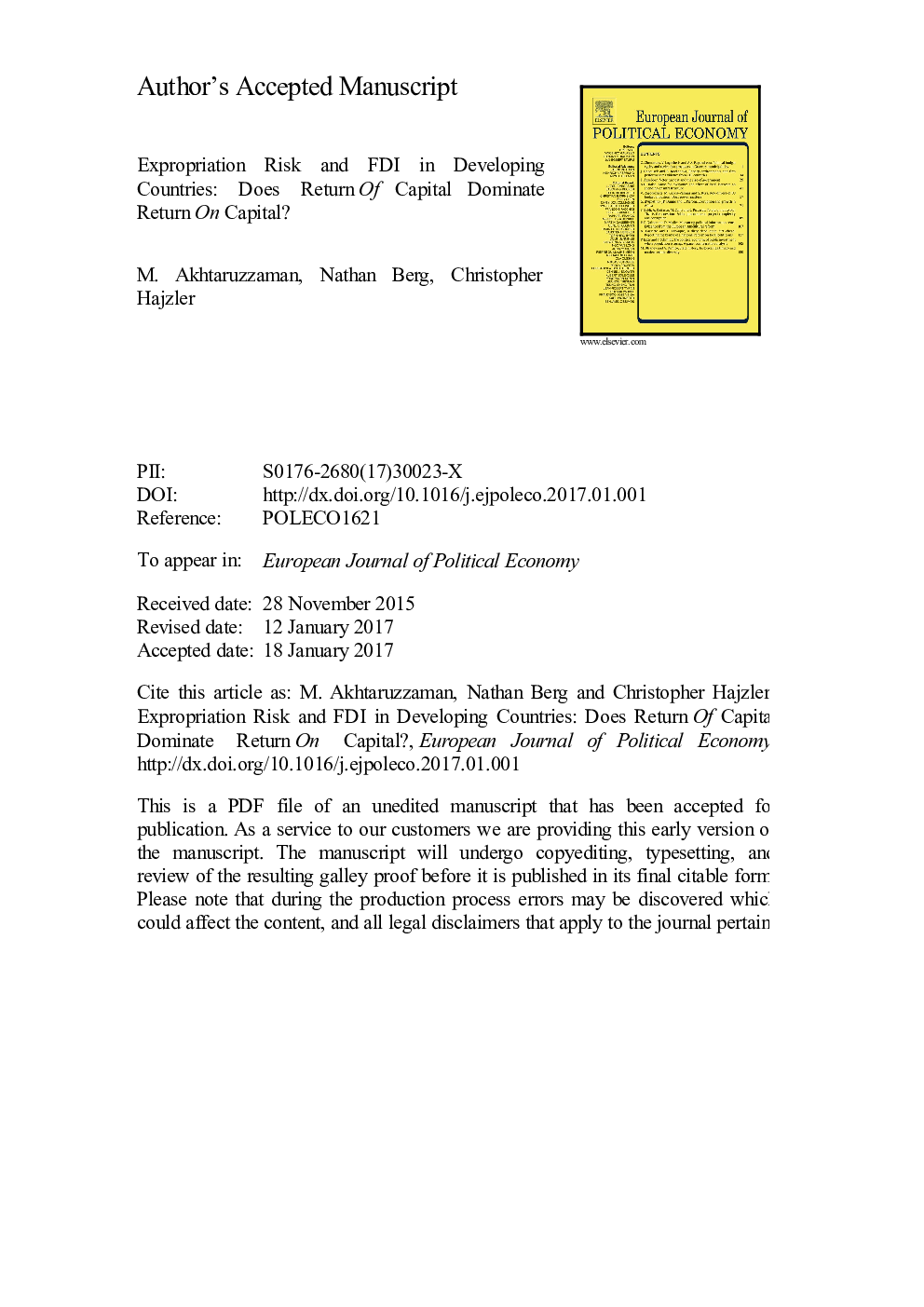| Article ID | Journal | Published Year | Pages | File Type |
|---|---|---|---|---|
| 5067789 | European Journal of Political Economy | 2017 | 69 Pages |
Abstract
Previously reported effects of institutional quality and political risks on foreign direct investment (FDI) are mixed and, therefore, difficult to interpret. We present empirical evidence suggesting a relatively clear, statistically robust, and intuitive characterization. Institutional factors that affect the likelihood of an abrupt and total loss of foreigners' capital (i.e., return of capital) dominate factors that affect rates of return conditional on a strictly positive terminal investment value (i.e., return on capital). The evidence is consistent with the hypothesis that expropriation risk is most important among the available measures of different dimensions of institutional quality. A one-standard-deviation reduction in expropriation risk is associated with a 72% increase in FDI, which is substantially larger than the effects of any other dimensions of institutional quality as simultaneously estimated in our empirical models of expected FDI inflows. We show that this evidence is consistent with the predictions of a standard theory of FDI under imperfect contract enforcement and multiple dimensions of political risk.
Related Topics
Social Sciences and Humanities
Economics, Econometrics and Finance
Economics and Econometrics
Authors
M. Akhtaruzzaman, Nathan Berg, Christopher Hajzler,
